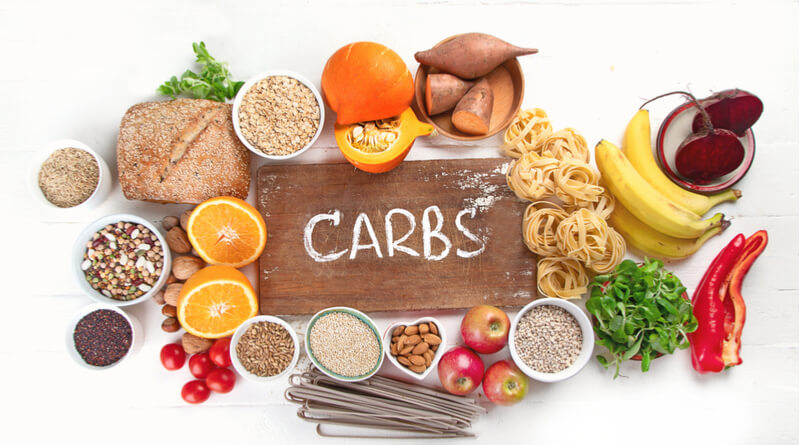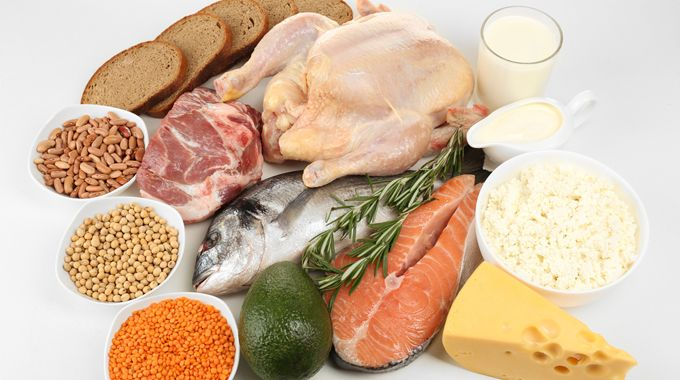After the strenuous journey of pregnancy, a woman’s body needs adequate nutrition to recuperate and adjust to the demands of motherhood. Carbohydrates, often misunderstood, are pivotal in this phase.
While some sources advise restricting carbohydrate intake, what’s more important is choosing the right kind of carbs.
This comprehensive guide will offer insights into the benefits of a carb-healthy diet for postpartum women, demystifying myths and presenting a balanced approach.
The Importance of Carbohydrates Post-Pregnancy

Carbohydrates play a crucial role in providing the energy required by our bodies. For postpartum women, this energy is especially vital.
Not only are they recovering from the physical demands of childbirth, but they are also likely facing sleepless nights and the additional responsibilities of caring for a newborn. Thus, a well-balanced diet with the right type of carbs can make a significant difference.
Fruits and Vegetables: Nature’s Nutrient-Packed Carbs
When we talk about carbohydrates, whole grains should take precedence. Foods like brown rice, quinoa, oats, whole grain bread, and pasta are treasure troves of complex carbohydrates.
These carbs break down gradually in our system, providing a consistent release of energy. Beyond energy, they’re also loaded with dietary fiber, essential minerals like iron and magnesium, and B vitamins.
These grains are indispensable for postpartum healing and ensuring regular bowel movements.
Whole Grains: The Superior Carb Choice
Often, carbohydrates are the primary source of energy for our bodies. For women who have recently given birth, this energy is of paramount importance.
Childbirth, in itself, is a physically demanding process, but post-delivery, the challenges continue with sleep deprivation and the rigors of newborn care.
A well-curated diet enriched with appropriate carbohydrates can fortify a new mother’s stamina, ensuring she meets her baby’s needs while taking care of her health.
Limiting Refined Carbohydrates
Just as all fats aren’t bad, all carbs aren’t good. Refined carbohydrates – found abundantly in white bread, most commercial cereals, pastries, and many processed foods – often lead to rapid fluctuations in blood sugar.
These fluctuations can result in mood swings, fatigue, and hunger pangs. For a new mother, this can add unnecessary stress. Emphasizing whole and unprocessed carb sources can stabilize energy mood and support better cognitive function.
Hydration and Its Role in Carbohydrate Metabolism
Water plays a pivotal role in the metabolism of carbohydrates. It aids in the digestion process, ensuring that carbs are effectively broken down and utilized by the body.
For breastfeeding mothers, staying hydrated is doubly essential, as it supports milk production. Drinking plenty of water throughout the day can enhance the benefits of a carb-healthy diet and support post-pregnancy recovery.
Carb Counting and Portion Control
While emphasizing the importance of carbs, it’s also crucial to understand portion sizes. Overeating, even the healthiest of carbs, can lead to unnecessary weight gain and feelings of sluggishness.
Tools like measuring cups or digital scales and being aware of serving sizes can help postpartum women enjoy the benefits of carbs without going overboard. The goal is a balanced plate with adequate protein, fats, and carbohydrates.
Crafting a Wholesome Post-Pregnancy Diet
Entering motherhood, a woman’s body is in a state of flux, adapting and recovering simultaneously. During this period, nutrition can either be a supportive ally or a challenging adversary.
A carb-healthy diet, which champions whole grains, fruits, and vegetables and curbs refined carbs, is the key to unlocking sustained energy and holistic health.
It’s a blend of understanding the body’s needs, making informed food choices, and practicing moderation.
Protein: Building Blocks of Recovery

Protein is essential for repairing tissues, especially after the exertion of childbirth. Including lean meats like chicken, turkey, and fish can provide the required protein.
For vegetarians and vegans, lentils, beans, tofu, and tempeh are excellent sources. Protein also helps in feeling satiated, reducing the chances of overeating.
Healthy Fats: For Hormonal Balance and Energy
Often misconstrued as weight gain culprits, healthy fats are vital post-pregnancy. They support hormonal balance, critical during the postpartum period.
Sources like avocados, nuts, seeds, olive oil, and fatty fish can be beneficial. For breastfeeding mothers, these fats also contribute to the nutritional quality of breast milk.
Dairy or Dairy Alternatives: Calcium and Vitamin D
Bone health is crucial post-pregnancy. Calcium and vitamin D, found abundantly in dairy products, aid in this.
For those allergic or intolerant to dairy, fortified plant-based milk like almond, soy, or oat milk can be an alternative. Cheese, yogurt, and other dairy products also provide probiotics, beneficial for gut health.
Iron-Rich Foods: Combatting Postpartum Anemia
Blood loss during childbirth can lead to reduced iron levels. Incorporating iron-rich foods can help in preventing postpartum anemia.
Choices include lean meats, spinach, legumes, and fortified cereals. Pairing these with vitamin C-rich foods can enhance iron absorption.
Fiber: For Digestive Health
The postpartum period can sometimes come with digestive challenges, including constipation. A diet rich in fiber from whole grains, fruits, and vegetables can promote regular bowel movements and overall digestive health.
Micronutrients: The Unsung Heroes
Zinc, selenium, magnesium, and various vitamins play a pivotal role in recovery and overall health post-pregnancy.
While supplements can be an option, prioritizing a varied diet with colorful fruits and vegetables, nuts, seeds, and lean proteins ensures these micronutrient needs are met.
The journey post-pregnancy is filled with challenges and changes. As women transition into this new phase of life, focusing on nutrition can significantly support their well-being.
A carb-healthy diet comprising whole grains, fruits, and vegetables offers the energy needed and ensures overall health and recovery.
While numerous dietary advice might be floating around, the essence lies in understanding and choosing what’s best for one’s unique needs.
By being informed and making mindful choices, women can confidently step into motherhood with vigor and vitality.

Jean Smith is a fitness enthusiast and blogger who focuses on fitness and a healthy lifestyle. She is passionate about assisting people in living healthier lifestyles and is constantly on the lookout for new and creative methods to stay fit and healthy. Her articles are excellent resources for anyone interested in improving their health and fitness.
